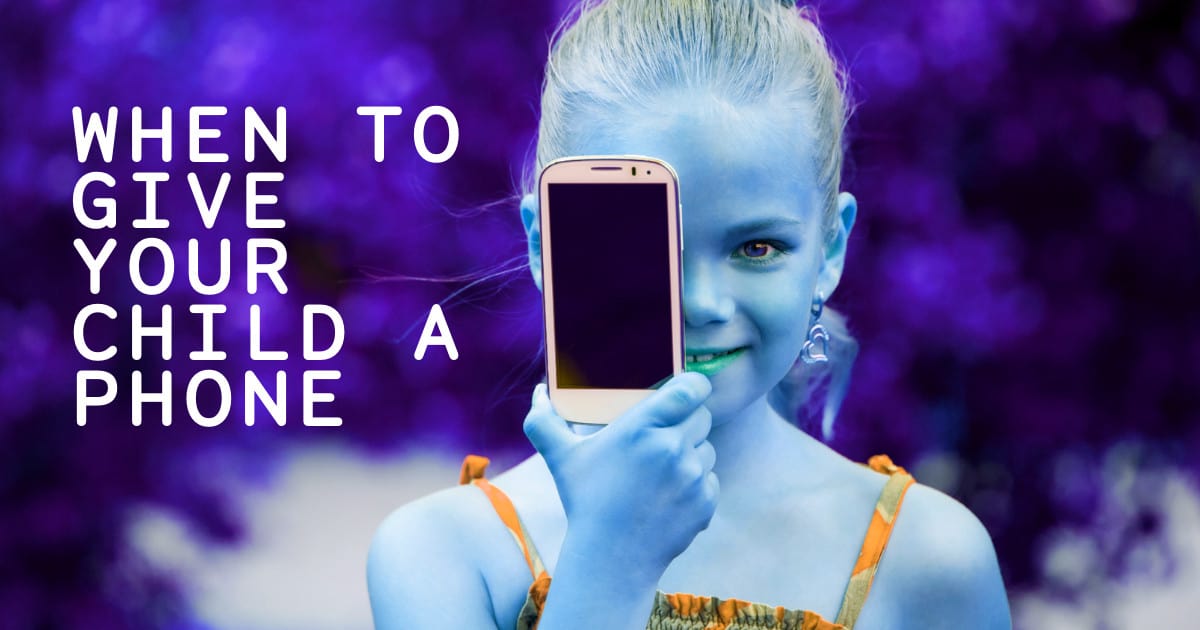
While phones used to be a luxury of the rich or the province of the parents, it has since become common for children to have phones as well. Toddlers and even babies are being introduced to cell phones and tablets so that they can watch their TV shows, listen to music and play games. But there is no reason for young children to be introduced at such an early age or for them to be given a phone of their own before it’s necessary.
When children are young enough to be supervised constantly, they don’t need a phone. It’s easy to forget in this age of technology that phones were originally used solely for communication. Your child doesn’t need a phone to play games or watch TV. Exposing your children to electronics from such a young age can also affect their growth and their attention span. There should be no reason for them to have a phone of their own or constant access to one. Keep the phone to yourself unless you’re including your child on a call.
When your child starts to drive, they should definitely have access to a phone. Even if it is simply a phone for emergencies, without any of the bells and whistles of the smartphones that teenagers are now accustomed to. But if they are becoming independent enough to be driving or venturing out on their own or with friends then they need to have some means of communication. This doesn’t mean, however, that there shouldn’t be rules. Don’t allow your child to overrule what kind of phone access you want to allow them.
But in giving your child a phone, you need to continue to maintain boundaries with them. This should extend to their phone, how and what it is used for and when they are allowed to use it. Just like the internet, a child’s phone use should be monitored and kept within acceptable use. The phones that many teenagers have now are internet-enabled and should come with extra boundaries and rules to keep your child safe.
As the parent, it is up to you when you think your child is ready for a phone of their own. A shared family cell phone for families with more than one older child can sometimes be the answer. Consider the maturity of your child and their ability to operate within boundaries. Giving your child a phone should be a matter of safety first rather than anything else. Phones nowadays open up other safety issues in regards to internet safety, something that you, as a parent, need to be aware of.
On the Web:
Is Your Child Ready for a Cell Phone? (Web MD)
10 Rules for Children and Cell Phones (All Pro Dad)
Kajeet is a wireless provider operating on the Verizon and Sprint LTE wireless networks. The company serves two distinct, yet parallel, markets: off-campus wireless broadband for school districts and mobile phones & service for kids. The highlights of the service includes cloud-based management tools, CIPA-compliant filtering, mobile device controls, data-usage controls, time-of-day controls, contract-free plans, and the option of GPS location services.


But do they know the dangers of taking inappropriate pictures (or the illegality of forwarding inappropriate pictures other kids have sent to them)? Do they know that apps can track their location, and that in-app purchases can really add up?
Do they know you expect to have their passwords, not because you don’t trust THEM, but because you don’t trust the billions of other people who use the Internet?
Written from a father to his child, this simple guide is a primer for all children getting their first phone. It’s meant to be an easy read and a discussion starter between parents and the children they love.


